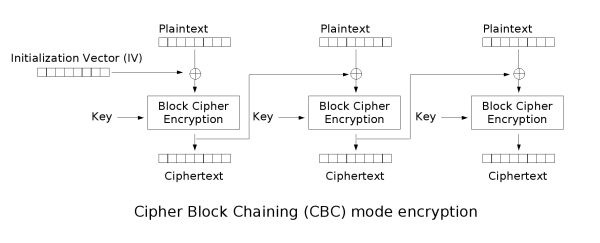In CBC mode, C2 = Ek(C1 ⊕ P2)
C2 = 2nd block of ciphertext
P2 = 2nd block of plaintext
Ek = encryption function
If IV is known (let's say it's set to 0), is there anyway to find the ciphertext block such that C2 = Ek(P2) ?
In CBC mode, C2 = Ek(C1 ⊕ P2)
C2 = 2nd block of ciphertext
P2 = 2nd block of plaintext
Ek = encryption function
If IV is known (let's say it's set to 0), is there anyway to find the ciphertext block such that C2 = Ek(P2) ?
If the message is only 1 block in size and the IV is null, then both ECB and CBC modes will produce an equivalent cipher text. However, the short answer to your question is NO. In most cases (like WEP and WPA) the IV is known to the attacker and this does not compromise the system. However, make sure that the IV is random when using CBC mode.
In Cipher Block Chaining mode (CBC), each plain text block is xor'ed with the previous cipher text block in the sequence. Thus you cannot decrypt the message in its entirety without following the "chain" or series of decryption routines. Its kind of like a one-time-pad meets a block cipher. The algorithm isn't that complex and here is a graphical representation of the two. Notice that they are nearly identical except CBC mode adds XOR operation for each block.


The simple answer is that if what you ask for was possible in general then CBC would then be equivalent to ECB anyway - there would be no security gained by CBC over ECB.
There is, however, an information leak in CBC. If you happen to observe two identical ciphertexts in CBC messages that were encrypted with the same key, Cn = Cm, then you can calculate Pn ⊕ Pm (it is equal to Cn-1 ⊕ Cm-1). Two identical ciphertexts are only likely in two cases: the first is that the sender re-used an IV, and the second is that you have observed a very large amount of traffic encrypted with the same key (for a 128 bit block cipher, on the order of 16 million TB; for a 64 bit block cipher, on the order of 4 GB).